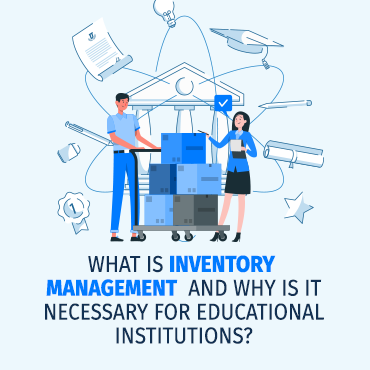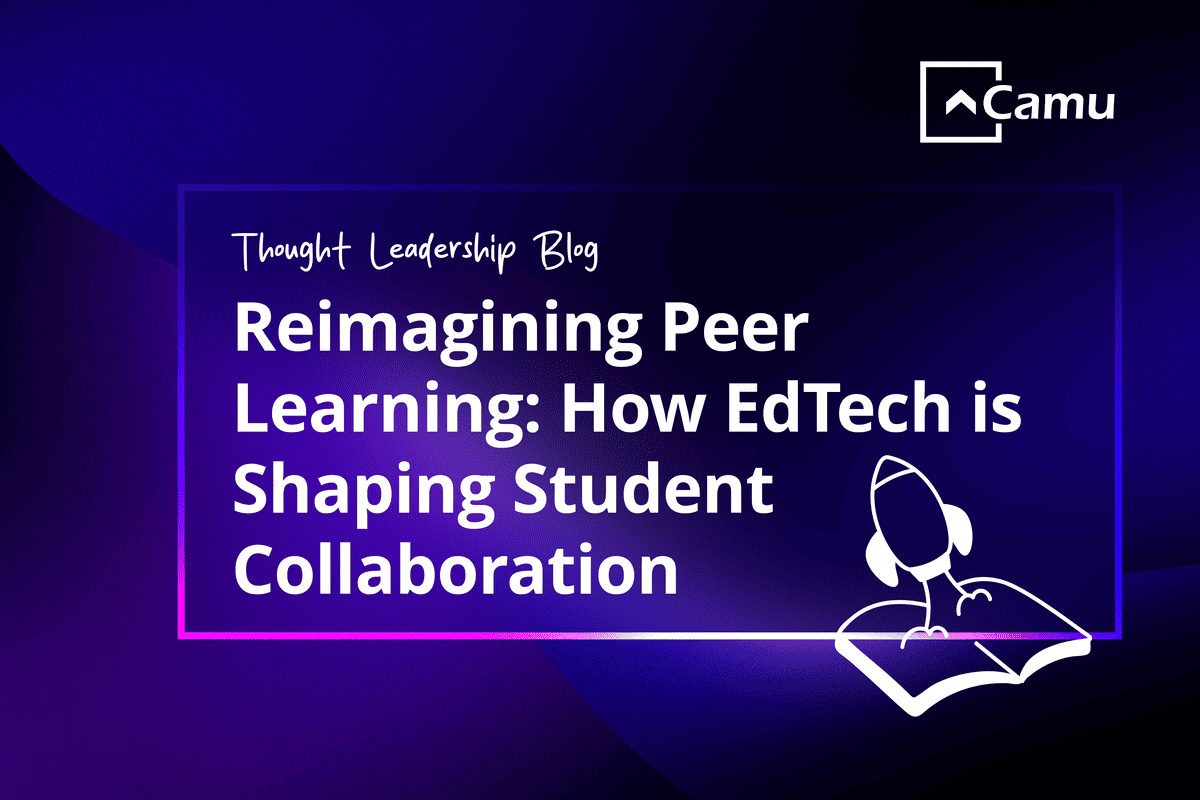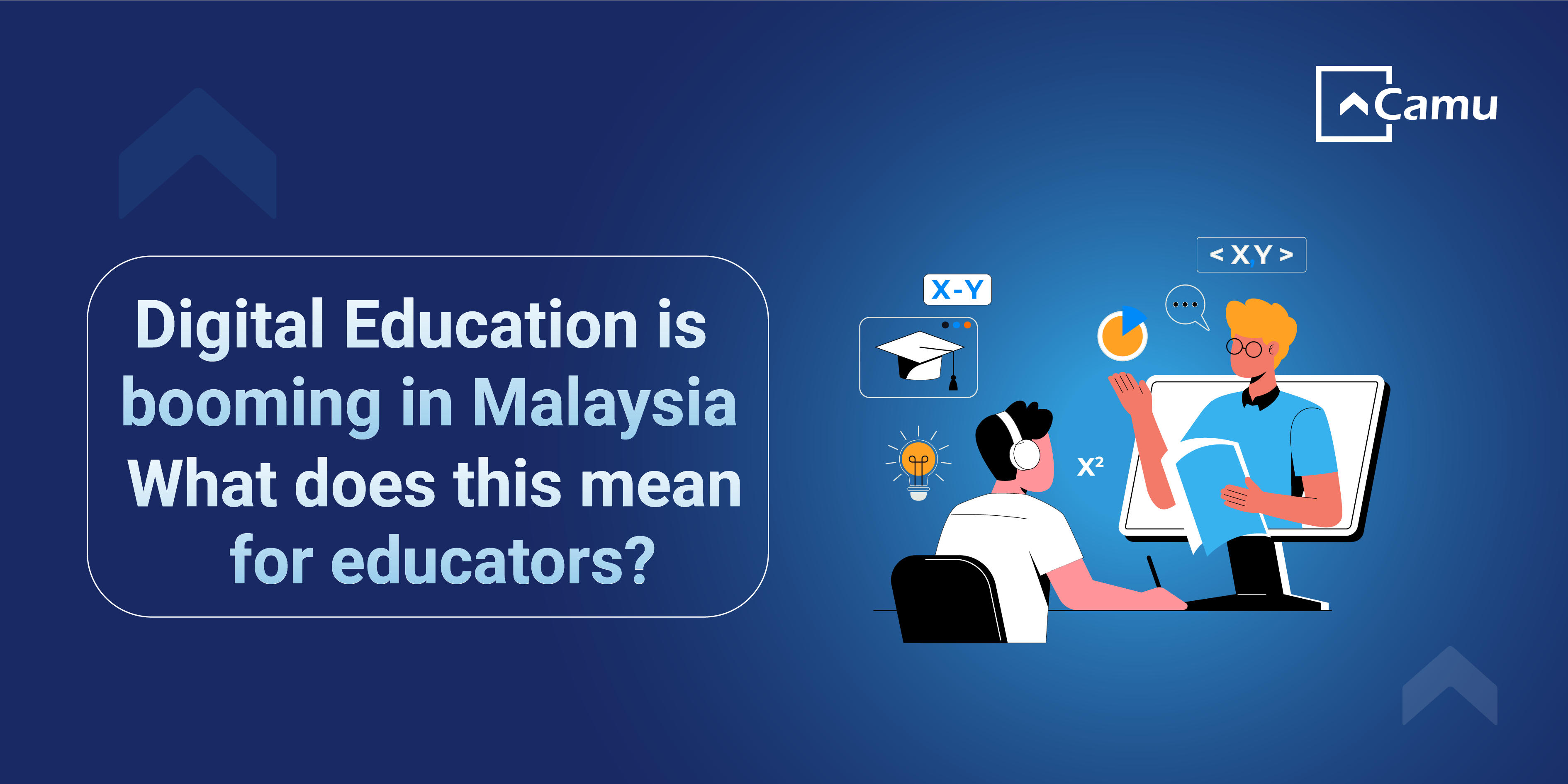Table of Content
What is 'Authentic Intelligence'? – The Essence of Being Human
How Educators Can Safeguard Authentic Intelligence
The Evolving Role of the Educator
Finding the Right Balance
Artificial Intelligence (AI) can do amazing things in education. AI-powered EdTech platforms like Camu can help in reducing administrative paperwork. They can make learning more personalized for each student. And they can get learners to engage with the educational content actively. This can free up educators. They can then spend more time connecting with students and guiding them in their learning tasks.
But there is a huge risk in relying too much on AI. Learners might just end up passively soaking up information instead of really getting involved in their own learning. If everything they need is generated by AI, they might not develop the ability to think for themselves. If they keep getting instant feedback from a computer at every step, they may not be able to come up with new ideas by themselves. Nor will they really dig deep and analyze the concepts they are learning.
What is 'Authentic Intelligence'? – The Essence of Being Human
Authentic Intelligence is the special set of human abilities, the development of which lies at the heart of genuine learning. The unique traits that form the foundation for growth are deeply rooted in emotion, ethics, and self-awareness. It encompasses the following key dimensions:
Creativity: It is that spark of coming up with something new and different. It is the capacity to think outside the box.
Critical Thinking: This is the capability to look at information and decide if it makes sense. You must be able to spot any biases and form your own opinions based on facts.
Problem-Solving: This is the ability to figure a way out of tricky situations. You often need to think creatively and try different approaches to effectively solve problems.
Contextual Understanding: This is the ability to get the bigger picture. You must appreciate how different concepts fit together. You should know how to use what you learn in different situations.
Ethical Reasoning: This is the ability to think about what is right and what is wrong. You must consider different viewpoints, and make good decisions based on values.
These are the qualities that really set us apart as humans. They are extremely important for being successful in life in a world that keeps changing so quickly.
How Educators Can Safeguard Authentic Intelligence
So, how can institutions make sure AI is helpful without losing these human capacities? Here are a few ideas:
Get learners to ask questions: Encourage them to be curious, explore different angles, and learn how to find and put together information from various places. Tools like the discussion boards and shared resources on the Camu Learning Management System can help with this.
Let creativity shine: Give students lots of chances to express themselves through art, writing, music, design – whatever they're into! Digital tools can even help them create online portfolios and share their cool projects.
Build those critical thinking muscles: Explicitly teach students how to analyse information, question things, and form their own arguments.
Team up for learning: Design activities where students have to work together, share ideas, and have real conversations. This helps them learn from each other and appreciate different viewpoints. Camu supports group projects and online discussions.
Learn by doing: Give students hands-on experiences like simulations and real-world projects. This helps them actually use what they are learning. That way, they become better problem-solvers.
Talk about ethical considerations: Include discussions about the right and wrong ways of using AI. Understanding ethics can make students become responsible digital citizens. This would get the students to start thinking about how technology affects society.
The Evolving Role of the Educator
This also means that teachers have a changing role. They are not just there to give out information anymore. Instead, they become more like guides, helping students to:
Experience learning in exciting ways: Creating activities that make learners want to think and work together.
Get personal help and feedback: Offering support that goes beyond just a grade, focusing on how each student can grow. Camu can help teachers track individual progress and give targeted feedback.
Have a mentor and coach: Helping students sift through information and get curious. The learners must be inspired to love learning for life.
Become tech-savvy: Teaching students how to use technology well and ethically. The students should develop an understanding of what AI can and can't do and they must use it responsibly.
Finding the Right Balance
Educators should strive to find the sweet spot. AI can be a fantastic tool to make education better, but it shouldn't replace the unique ways humans learn and think. Institutions need to focus on developing the student as a whole – their intellect, their creativity, their emotions, and their sense of right and wrong. If we do that, we can make sure future generations are ready for a high-tech world while still holding onto what makes us uniquely human.





